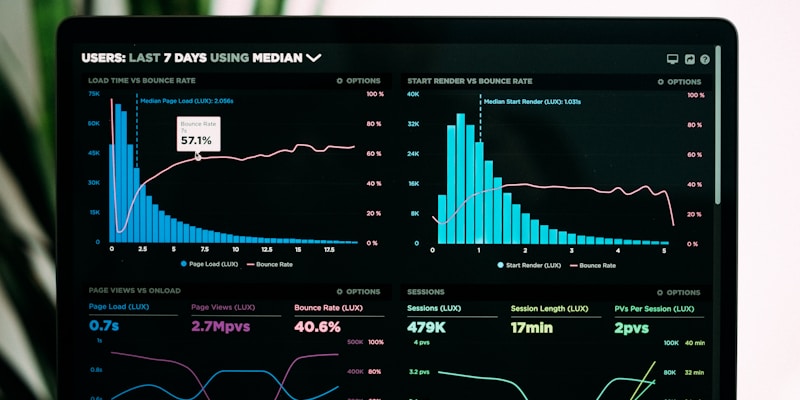Why Those Pretty Pricing Pages Are Complete Bullshit
Look, I've been through this dance at three different companies now. Each time I thought I was smarter, each time I got blindsided by costs I never saw coming. The per-token pricing you see on their websites? That's like looking at the sticker price on a car - cute, but completely unrelated to what you'll actually pay.
Here's what really happens when you try to buy AI APIs for a real company:
OpenAI: They'll Ghost You Until You Have Money
OpenAI's enterprise sales team is like dating someone way out of your league - they'll ignore your calls until you prove you're serious about spending six figures. I've seen them take three weeks to respond to initial inquiries, then suddenly become your best friend when you mention a $250K budget.
Volume Discounts Are Real, But...: Yeah, they'll give you 20-30% off if you commit to spending $100K upfront. Great, except nobody tells you that estimate was based on GPT-3.5 usage, and now your team wants GPT-4o for everything, which costs 5x more. Congratulations, you've committed to buying tokens you can't afford to use.
The "Flexible" Commitment Trap: They love to sell "staged commitments" where you start small and automatically get charged more when you hit usage thresholds. Sounds smart until your junior developer accidentally puts the API key in a retry loop and burns through three months of budget in one weekend. Ask me how I know.
Timeline Reality Check: Plan 6 months minimum from "hey, we need AI APIs" to actually having a signed contract. That's if everything goes smoothly, which it won't. Legal will want to redline half the contract, security will demand audit trails that don't exist, and finance will question every line item like they're funding the Manhattan Project.
Anthropic: Actually Returns Your Calls
Anthropic's sales team is the scrappy underdog trying harder. They actually answer emails within 24 hours and don't make you feel like you're bothering them. This matters more than you'd think when you're trying to get a contract signed before your pilot project gets killed.
Custom Everything: Because they're smaller, Anthropic will negotiate pretty much anything. Need weird rate limits? They'll figure it out. Want a custom privacy agreement because your legal team is paranoid? They'll draft something. This flexibility is awesome until you realize you're now the beta customer for whatever arrangement you negotiated.
The Academic Discount Myth: They talk up academic discounts, but in practice, most universities are better off with OpenAI's education pricing. Unless you're doing serious AI safety research, Anthropic's "special academic rates" aren't that special.
Batch Processing Actually Works: Unlike OpenAI's batch API which sometimes takes 48 hours instead of 24, Anthropic's batch processing is reliable. The 50% discount is real, and it actually processes on time. Small victories matter when you're dealing with vendor bullshit all day.
Google: If You're Already in GCP Hell
Google's approach is basically "you're already using our cloud, might as well use our AI too." If you're already spending $200K/year on Google Cloud, their sales team will magically appear and offer you deals. If you're not, good luck getting anyone to return your calls.
Committed Use Discounts Are Legit: Google's CUD model is actually transparent - commit to spending X dollars over 1-3 years, get Y% discount. No games, no hidden fees. The discounts range from 20% to 57% depending on how much you commit and how long. It's refreshing after dealing with OpenAI's "trust us, it's a good deal" approach.
The GCP Integration Tax: If you're already on Google Cloud, adding Gemini APIs is trivial - same billing, same IAM, same support nightmare. If you're not on GCP, prepare for a world of pain. You can't just use Gemini APIs; you need to set up an entire GCP account, learn their billing system, and figure out why your IAM permissions aren't working.
FedRAMP Actually Matters: For government work, Google is the only game in town. They have FedRAMP High authorization, which means you can actually use their stuff for government contracts without lawyers having panic attacks. OpenAI has nothing, and Anthropic is still "working on it".
The Costs That Will Fuck Your Budget
Integration Hell (Budget 6 Months and $150K Minimum)
The APIs are just the beginning. You still need to actually integrate this shit into your systems, and that's where the real money disappears:
Custom Development: We budgeted $75K for integration. Ended up at $160K because nobody factored in the time spent debugging authentication flows, handling rate limits, and building retry logic that doesn't go insane when APIs are down. Which is often.
Security Theater: Your security team will demand an API security audit. The audit will cost $40K and take 3 months. They'll find 47 "critical" issues, most of which are just the auditors not understanding how API security controls work. You'll spend another $30K fixing issues that don't actually matter.
Training Your Team: Everyone needs to learn the new APIs. Plan 2 weeks of dev time per engineer, plus another week debugging the weird edge cases nobody documented. That's $15K in opportunity cost if you have a team of 5 engineers making $150K each.
Monitoring That Actually Works: The vendors' built-in monitoring is garbage. You'll need custom dashboards, alerting, and usage tracking. Budget $20K for tooling and another month of engineering time to build something that doesn't suck.
Compliance Nightmare
If you're in healthcare, finance, or government, multiply everything by 1.5x and add 6 months:
Data Residency: "We need EU data residency" sounds simple until you realize it costs 40% more and has half the features. Every GDPR compliance requirement adds complexity you didn't budget for.
Audit Trails: Enterprise logging isn't just turning on a checkbox. It's building custom systems to track every API call, every user interaction, and every data transformation. Budget $50K if you want it done right.
The Compliance Tax: Every regulatory requirement adds 3-6 months to your timeline and $25K-$75K to your budget. HIPAA compliance alone will cost you more than the actual APIs for the first year.
Why TCO Calculations Are Bullshit
Every vendor will give you a TCO analysis showing they're cheapest. Here's what they don't tell you:
Migration Costs: Switching providers later costs 3x more than getting it right the first time. Choose wisely because you'll be stuck with your decision for years.
Vendor Lock-in: The "flexible" APIs become less flexible when you have 50 integrations depending on provider-specific features.
Hidden Complexity: The cheapest per-token provider often requires the most engineering work to implement properly. Your "savings" disappear into dev time faster than your runway disappears into marketing spend.



